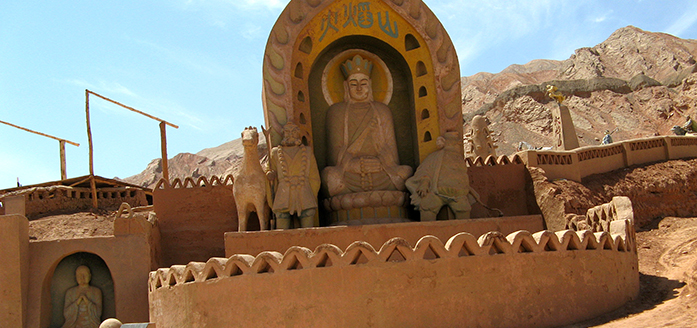Is Buddhist Studies elitist? Short answer: ideally, although it depends on how one defines the word. Like every humanities subject, Buddhist Studies can feel like an insular field if it’s not careful. Much of my work as a journalist who loves Buddhist Studies, a subject of which I was a devoted but hardly competent student, has been to ask, in effect, the sharp and groundbreaking scholars I encounter: “What’s at stake here?” in their thesis or research.
It’s a blunt question (I don’t actually phrase it so directly). Yet it’s a crucial one, I believe, that helps PhD students, professors, and other academic professionals articulate their objectives and hopes for what to achieve, be it for their own circle of researchers or when they share their voices with us on Buddhistdoor Global.
But as any Buddhist Studies academic who knows me personally, I’m keen on defending the Buddhist Studies discipline because, when done right, it nudges our understanding of Buddhism toward the right direction (over many years, admittedly, as per the pace of academia): to a more open-ended, curious, and non-dogmatic conception of this great religious organism.
We also need to allow for the fact that Buddhist Studies, over the past few decades, has become extremely diversified and interdisciplinary, and many an academic article will fuse philology with archeology or critical history, or philosophy with chemistry and chromatography. In this respect it is hard to make the case that Buddhist Studies is insular. In many ways, it can’t afford to be because the name itself is deceptive: it concentrates only on the “Buddhist” side of things, but the Buddhist experience involves world history, economics, philosophy, art, culture, science… almost everything under the sun.
I was prompted to think about the question when reading back on some of the volumes of my treasured Buddhica Britannica series, a collection of monographs compiled by SOAS academics back in the 1990s and 2000s. This is the only collection of academic publications that I possess in its entirety, aside from volume 7. But these days there are plenty of high-brow Buddhist Studies journals that one can collect, from the cute-sounding JIABS (Journal of the International Association of Buddhist Studies), Indica et Tibetica, the interfaith Buddhist-Christian Studies, Pacific World, and The International Research Institute for Advanced Buddhology at Soka University, just to name a few. We’re barely scratching the surface of all the other academic journals that, while not exclusively concerned with Buddhist Studies, feature a good dollop of Buddhist Studies every year: the Journal of Chinese Philosophy, the International Journal for the Philosophy of Religion, Monumenta Nipponica… I really needn’t go on. It can feel a bit intimidating.
Just because there is a large body of journals scholars can publish in doesn’t mean, of course, that Buddhist Studies has thrown open its doors to everyone. There are three things that matter much more: student accessibility to good institutions and universities, empowering Buddhist Studies centers and departments to recruit academic talent, and devotion to cultivating young scholars, who might not yet have made an impact but are the future of the Buddhist Studies world.
Institutions accomplish these three things to varying degrees, and I don’t mean to praise or criticize any particular institute or group. Rather, I believe that there is an inverse correlation between the success of the implementation of these three necessities and perceptions of the negative kind of exclusivism: the worse we do at facilitating those three needs, the more Buddhist Studies will be seen as navel-gazing and stagnating. Yet there are very good forms of elitism. The best conception of elitism is the intellectual kind, where Buddhist Studies accepts nothing but the best of research, creativity, and rigour. Now that is an elitism worth fighting for and which every Buddhist Studies school should be proud of.

